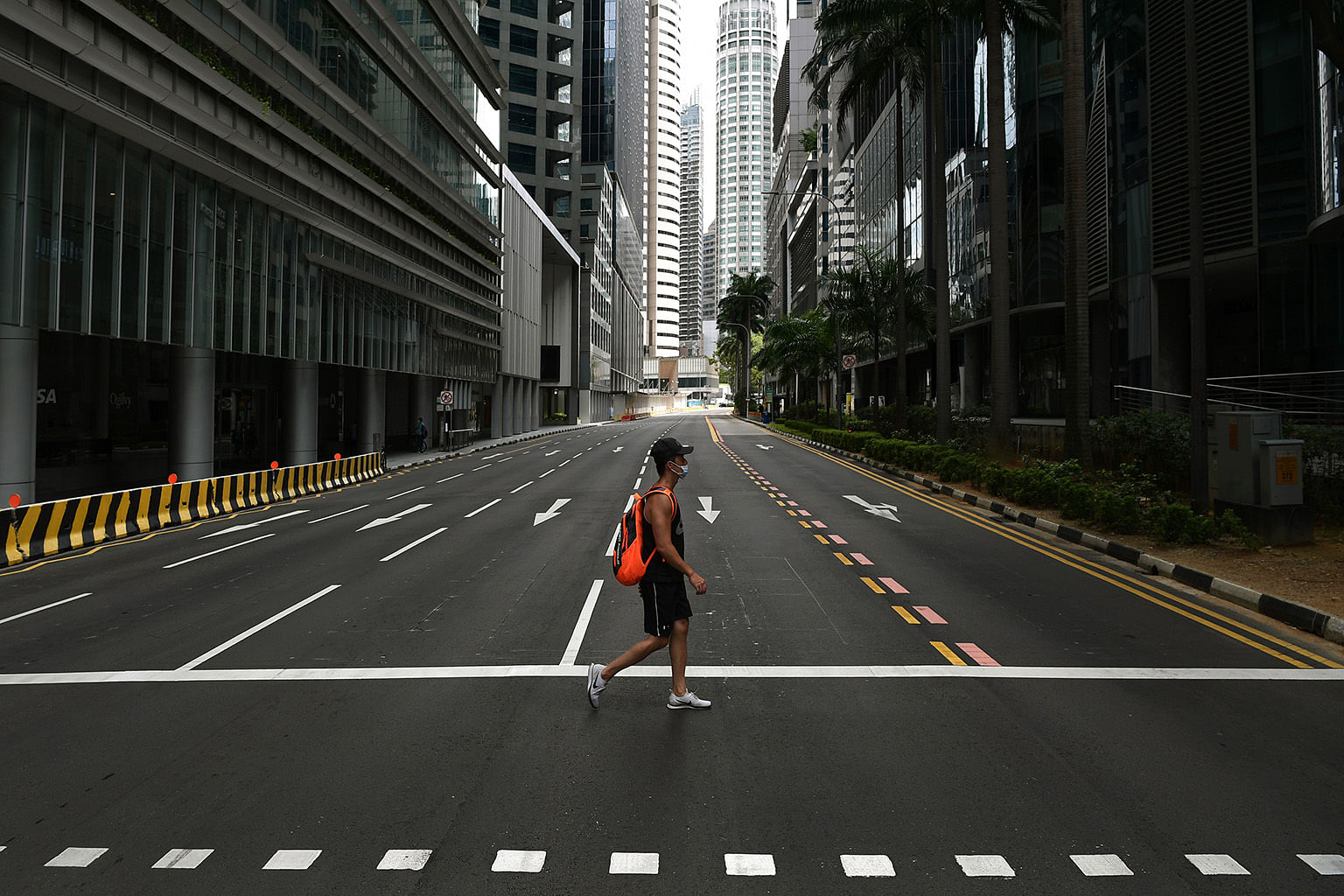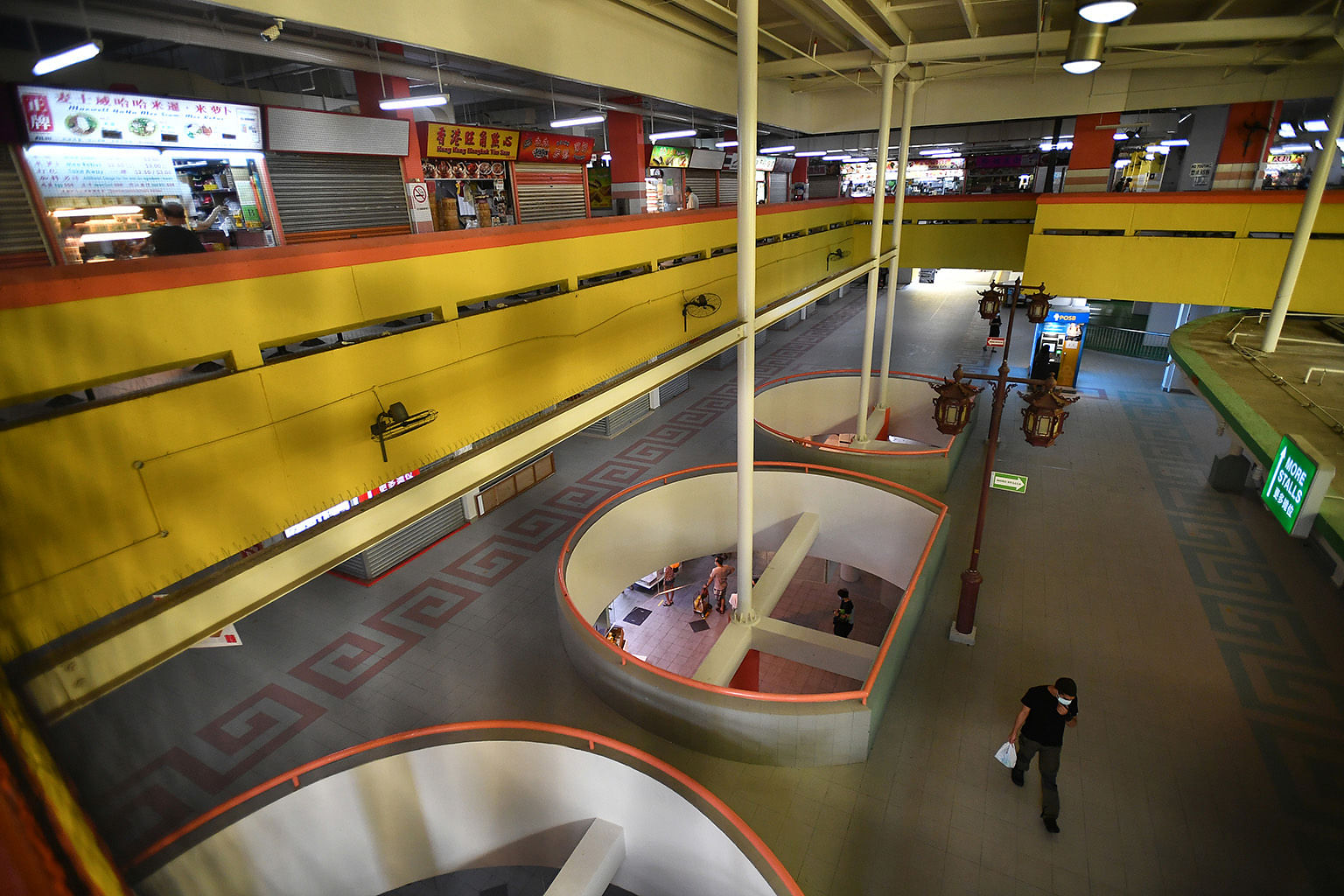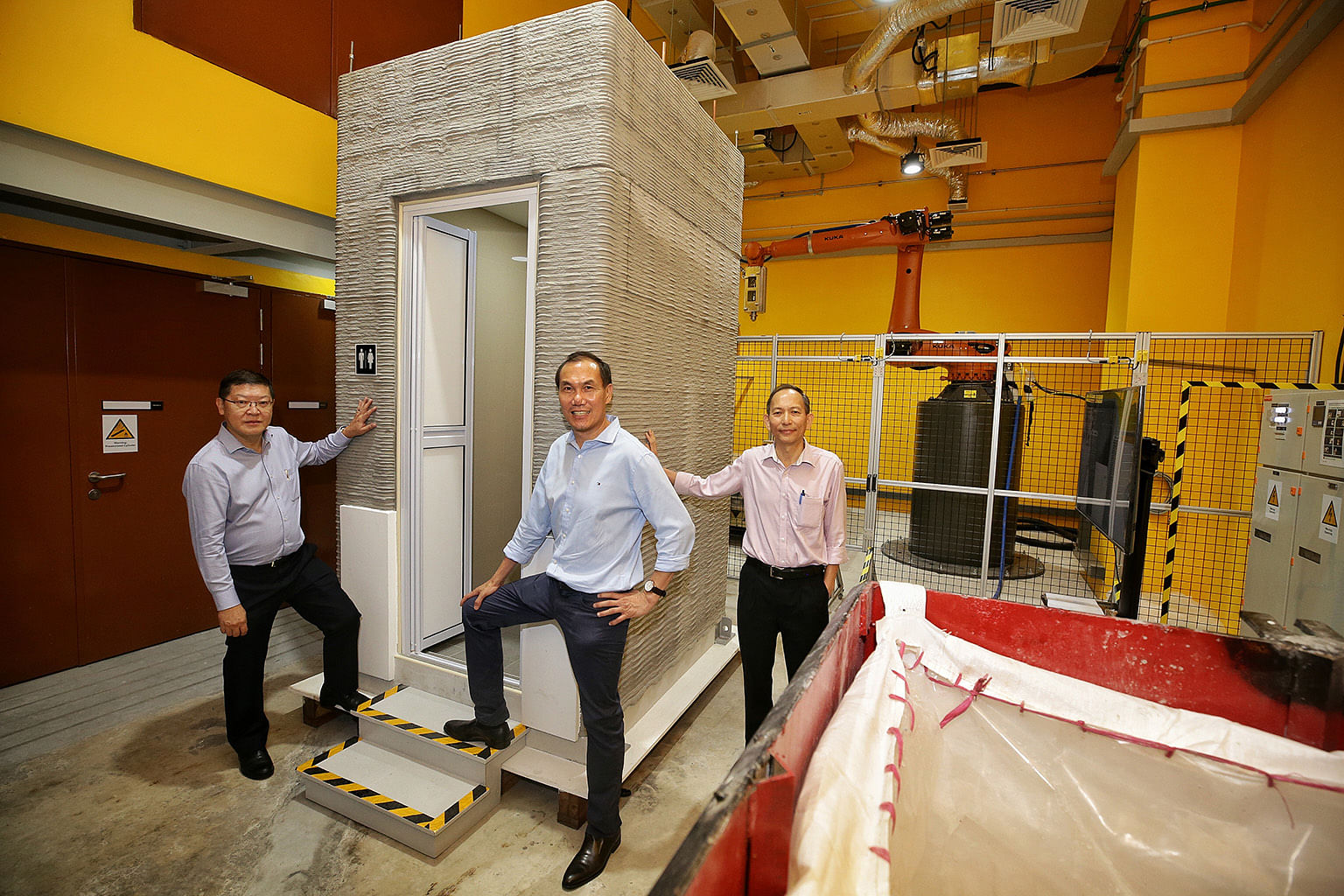Over the years, economists have talked of the "post-war economy", the "post-industrial economy" and the "post-Brexit economy". Now they are talking about the "post-Covid-19 economy".
It is not yet upon us - Covid-19 is still raging around the world.
But some of the contours of the economic future are already coming into view. And for Singapore, as for many other countries, there is both bad news and interesting possibilities.
Let's start with the bad news. Amid the rise of social distancing and the possibility of circuit breakers being switched on and off, what will emerge is more of a "low-touch economy" in which public gatherings will be limited, travel restricted and familiar activities such as socialising, eating out and large events - conferences, concerts and sports tournaments - curbed.
There may also emerge, temporarily, a new generation of white elephants in the form of mega malls, high-rise hotels, big office buildings (since more people will be working from home), cruise ships, aircraft fleets and big event venues.
These will come back into their own eventually, but for the foreseeable future, they will be either empty or operating well below capacity. The same is true of the oil and gas sector.
In several industries, bankruptcies and layoffs will rise. Companies will try to minimise permanent headcount and turn to more contract workers. The gig economy will expand - many workers will work on a temporary basis for multiple companies at the same time. The labour market will be transformed.
Trade patterns will also change as supply chains shift and countries try to reshore more production.
There may also be a rise in protectionism, at least in the short run, as countries move to protect favoured industries from competition amid deepening recessions and job losses.
There is also evidence of export protectionism, with countries restricting exports of medical supplies, pharmaceuticals and even food, and there are signs that the United States-China trade war may flare up again.
NEW OPPORTUNITIES
But, as always happens during periods of crisis and change, there will also be new opportunities and areas for growth.
Although many industries are depressed, one of the exceptions is the medical and pharmaceutical industry which is on the cusp of a boom, with many countries around the world likely to ramp up health spending, even after the Covid-19 crisis subsides.

Singapore is exceptionally well positioned in this area, with more than 30 of the world's top pharmaceutical and medical technology firms having established manufacturing and research and development (R&D) facilities here.
Singapore's biotechnology sector also shows promise. Last year, it launched a new consortium called the Target Translation Consortium, to coordinate early-stage drug discovery efforts across government agencies, healthcare institutions and universities.
In the context of coronavirus-related research, scientists from Singapore's Duke-NUS Medical School have joined the global race to develop a vaccine, and plan to start clinical trials later this year.
While vaccine development is the holy grail in the battle against Covid-19, there is also scope in other areas such as biologics - which includes the development of cocktails of antibodies that can treat patients with the disease - as well as the development of drugs and test kits, in all of which Singapore can also contribute.
Several Singapore companies have already developed test kits, including some which can yield accurate results within 10 minutes and do not need specialised equipment or laboratory-trained personnel.
These successes not only represent important steps in controlling the spread of the pandemic, but may also have promising commercial potential.
Across industries in general, the post-Covid-19 economy will lead to an acceleration of several trends that were already incipient.
One of the mega trends we will see is the rapid spread of digitalisation as remote work becomes the new normal.
Singapore has a head start here, with its Go Digital and other programmes, which offer pre-approved digital solutions with grant support - which not many other countries have. This will empower thousands of companies to transform relatively quickly to operate digitally. This capability will be the minimum entry ticket to functioning in the post-Covid-19 economy. But companies and workers will need to adapt to this new world.
REMOTE WORK, REMOTE HIRING
The rise of remote work will present both opportunities and challenges.
On the plus side, it will enable companies to save on real-estate costs, utilities, office supplies and infrastructure, as well as commuting costs for employees. But remote work will mean not only working from home, but working from anywhere. This means that more companies will be able to hire the best from anywhere in the world.
As a result, some categories of Singapore workers, especially those in white-collar jobs, will be up against stiffer competition as the labour market becomes more globalised. But they will also have more opportunities to work for companies outside Singapore.
Companies, too, will be able to serve clients and customers around the world, digitally. And not only companies, but also educational institutions, through massive open online courses, and doctors and hospitals through telemedicine.
Remote learning and remote medicine will move from the fringes of their industries into the mainstream in the post-Covid-19 economy.
The low-touch economy will lead to a boom in e-commerce, which is already discernible. More retailers, restaurants and even wet markets are going online, a trend that will accelerate with the launch of the E-Commerce Booster Package last month by Enterprise Singapore, which covers 90 per cent of the set-up costs of selling online for retailers new to e-commerce.
The rise of e-commerce could be permanent as people's shopping habits change and more retailers get online. Singapore is already well served in e-commerce, with established players like Amazon, Qoo10, Lazada, Shopee and Carousell, as well as niche, industry-specific players such as Sephora, FairPrice and Gymsportz. More niche players could emerge.
The e-commerce boom would spur the growth of related services such as Web design, digital marketing and content management.
The domestic logistics industry will also grow as e-commerce takes off and becomes more entrenched.

"LOW-TOUCH" MANUFACTURING
Manufacturing will also become more "low touch" in the post-Covid-19 economy. This means automation will accelerate, with greater use of robots, more remote-controlled processes and 3D printing. This can work to Singapore's advantage by helping to neutralise its relatively high labour costs.
Singapore has had a National Robotics Programme since 2015, which has since been scaled up. Work is under way on packaged solutions for small and medium-sized enterprises.
Singapore had the highest robot-to-human density in manufacturing last year, according to the International Federation of Robotics.
The faster push into robotics in the post-Covid-19 economy will transform not only manufacturing - where robots are already performing tasks such as product assembly and testing - but also healthcare, construction, logistics and other industries. For example, autonomous transporters are already being used to move supplies efficiently and dispense medication in hospitals.
Some hotels are already using indoor "robobutlers" to deliver food, beverages and linens.
3D printing is another area that will gain more prominence in the post-Covid-19 economy as more manufacturing gets reshored and low-touch processes come into favour. Singapore has a national centre for 3D printing at the Nanyang Technological University (NTU), as well as several companies active in this space - though many of them at an early stage.

But 3D printing has huge potential to transform not only manufacturing but also other industries such as construction - last year, NTU researchers 3D-printed a bathroom in nine hours - healthcare, through for example, 3D-printed medical implants, and even fashion, through 3D-printed clothes.
3D printing is an enabling technology in which Singapore could step up its investments in the post-Covid-19 economy to build a competitive advantage, and its potential applications are endless. In short, Singapore could accelerate its shift to advanced manufacturing.
A NEED TO PIVOT
One could think of many other industries that also hold out promise in the post-Covid-19 economy in which Singapore could develop capabilities and where companies are already operating, ranging from urban farming and green energy technologies to hygienic packaging, e-sports and electronic gaming - which are already bigger than the global film and music industries combined.
But companies will need to pivot to take advantage of the new opportunities. They would also need to continue investing in R&D and innovation through the crisis, instead of focusing on only cost-cutting. Research by management consultants shows that those that do so perform better than their competitors after a crisis. Individuals will also need to reskill for a more digital, automated and competitive world.
So, amid all the doom and gloom that the Covid-19 crisis will create, there are also silver linings and even more will come into view.
The challenge for Singapore Inc will be to spot them early, adapt fast and execute well.











